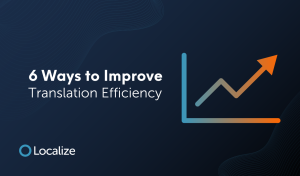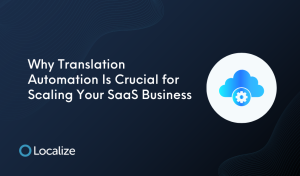In a globalized business landscape, you need to develop the ability to communicate in multiple languages if you intend to make an impact in a foreign market. This is rule number one as far as localization goes and a fact that we’re all aware of.
Now, this typically involves translation and localization. However, localization involves a set of processes and this can sometimes include interpretation. Interpretation plays an important role in helping businesses communicate with a foreign audience effectively. But, it’s quite from different from simple translation.
A basic view of the whole thing might tell you that it’s the medium that differentiates the two services. After all, interpretation typically refers to the practice of orally translating speech from one language to another while translation involves converting written text into another language.
But, there is a deep connection between the two as well. For example, both, effective translation and effective interpretation require a deep understanding of the linguistic and cultural components, apart from possessing an expertise in the subject.
However, in order to effectively use both, we also need to look at the more in-depth differences between the two.
A Look At Interpretation
Unlike what is often understood, interpretation is not a literal translation of speech. When interpreters interpret, they are automatically factoring in components such as context within their heads to provide a more accurate translation of what is actually being said.
Sentences in one language are often constructed in a completely different manner to how they might be constructed in another language. So, context needs to be factored in to preserve the actual meaning. This entails rephrasing idioms or selecting relevant and culturally-significant terms. Even the tone of what is being said needs to factored in.
In fact, interpreters even edit out words or terms to provide the gist of what is being said.
Translation – A Comparison
On the other hand, translation, in the modern context, is done with the help of computer-aided programs. So, you basically feed the source content into a translation software and let the translation memory handle your basic translation.
The rest of the process involves quality checks for grammar and accuracy.
So, Do You Need Interpretation Or Translation?
In order to understand which of the two benefits your localization efforts, there are 4 factors that you need to consider.
The first is delivery. Interpretation occurs in real-time and can be done via mediums such as a phone or video calling. Translation, however, happens after the source content is created and delivered. So, translators have an advantage here. They have more time to work on the content, which boosts accuracy.
That brings us to the second factor, which is accuracy itself. Time is an interpreter’s enemy and this can often cause accuracy issues. However, translation isn’t as dependent on time as interpretation. So, the accuracy is naturally higher. Expertise and training are needed to achieve perfection in interpretation, while translation can be handled by a machine for the most part.
Thirdly, interpreters are required to be fluent in the source language and the target language. Though translators also need to know the source language to translate effectively, the level of fluency can be compromised on. After all, half the work is done by the translation software. The translator is mainly required to provide context and improve the overall quality of the translation.
Lastly, interpreters have the challenge of communicating tone as well, which isn’t necessarily required in translation. Translation is focused on written text and that is generally neutral. Of course, knowing where to use elements such as punctuation marks can alter meaning, but, it still isn’t a real-time challenge.
On the whole, it would be safe to say that translation is the most effective tool in the localization toolbox.
Ready to go global? Sign up for a 2 week trial here and we’ll reach out to help.






